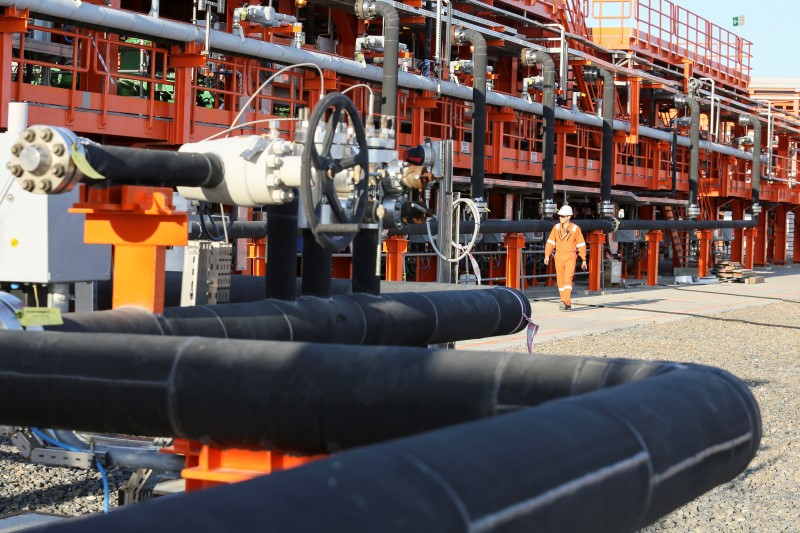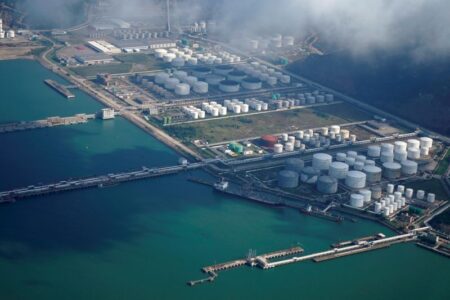By Florence Tan and Sudarshan Varadhan
SINGAPORE (Reuters) -Oil prices ticked higher on Monday after China took steps to support its flagging economy, though investors remained worried about the pace of growth as well as further U.S. interest rate hikes that could dampen fuel demand.
rose 19 cents, or 0.2%, to $84.67 a barrel by 0627 GMT, while U.S. West Texas Intermediate crude was at $80.09 a barrel, up 26 cents, or 0.3%.
Brent and WTI posted a second week of losses on Friday after Fed Chair Jerome Powell said the U.S. central bank may need to raise rates further to cool still-too-high inflation.
Oil benefited from a better tone on the opening, IG market analyst Tony Sycamore said, after China halved stamp duty on stock trading effective Monday in the latest attempt to boost struggling markets.
“Unfortunately, after last week’s modest (Chinese central bank interest) rate cut, the announcements above amount to another piecemeal measure that won’t alter investor gloom towards China,” said Tony Sycamore, a market analyst at IG.
China’s manufacturing purchasing managers’ index (PMI), due later this week, is likely to reveal more dour economic news around the world’s second-biggest economy, Sycamore said, adding that the PMI was likely to stay in contraction territory for a fifth consecutive month.
CMC markets analyst Tina Teng said a soft-landing scenario for the U.S. economy buoyed energy markets on Monday, despite the Federal Reserve’s hawkish stance on rate hikes.
In the United States, energy firms cut the number of active oil rigs for a ninth month in August, Baker Hughes said in a report.
Also, Tropical Storm Idalia has formed in the Caribbean and could strengthen into a hurricane and hit Florida.
The hurricane is forecast to miss oil and gas centres in the Gulf and the most likely impact is a day or two of power outages, said IG’s Sycamore. That “should see some short term support for the oil price”, he said.
Oil prices have remained above $80 a barrel on support from falling oil inventories and supply cuts from the OPEC+ collective of oil producers.
However, “the narrative of tightening supply,” has been eroded by prospects of easing sanctions on Iran and Venezuela, ANZ Research said in a client note on Monday.
Read the full article here












